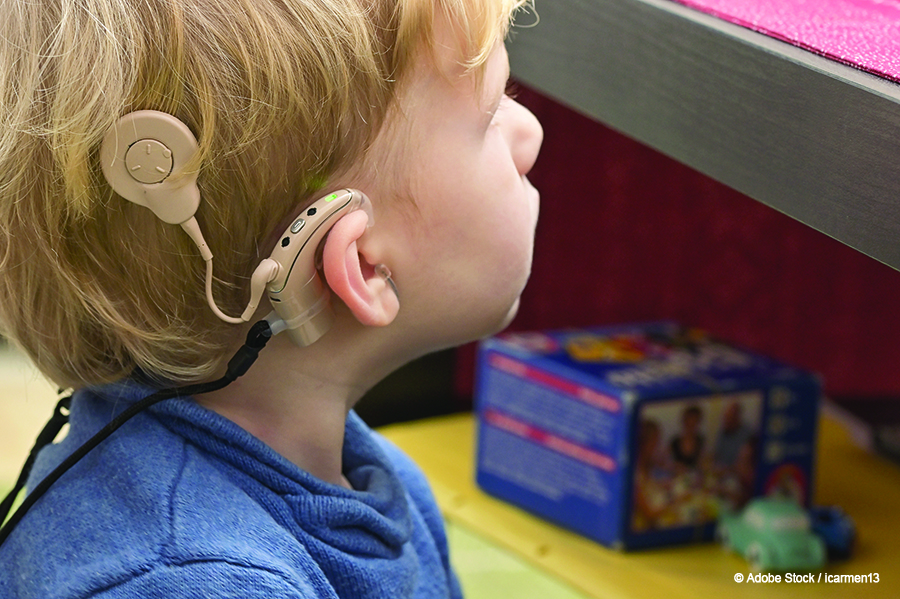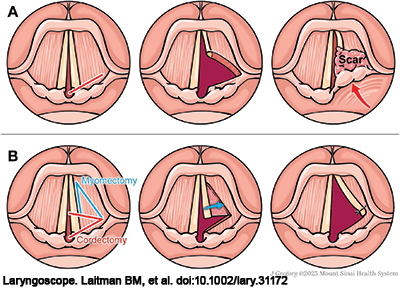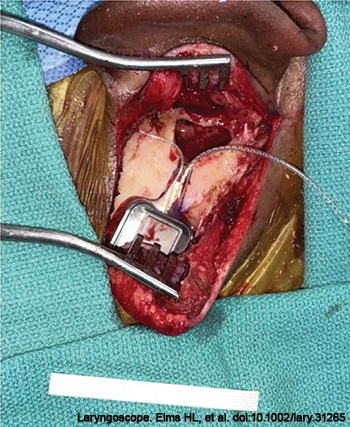Commercial-grade, app-based pure tone audiometry demonstrates an overall strong correlation and accuracy with traditional audiometry, but it is not intended to replace an evaluation performed in a controlled environment with calibrated equipment and a skillfully trained clinician.
Ophthalmic Medication Maxitrol Shown to Eradicate Pseudomonas Aeruginosa Biofilm In Vitro
Bacterial biofilms are a feature of many chronic diseases of the head/neck. Few of the topical antibiofilm agents that can be used to eradicate biofilms in vitro are suitable for otolaryngological application. Maxitrol may demonstrate antibiofilm activity and may therefore be useful in the management of biofilm-related disease in the head/neck.
Survey Underscores Lack of Support for Left-Handed Surgical Trainees
Surgical instruments and equipment are often designed for right-handed (RH) users, creating potential ergonomic challenges for LH surgeons, and ORLHN falls behind other fields in providing targeted support.

Tales from the Trenches: Leaders in Otolaryngology Talk About Their Career Achievements and Challenges
In a session at the 2024 Triological Society Combined Sections Meeting, prominent leaders in otolaryngology shared how they got started—stories of luck, passion, and the benefits of being mentored, intended to give insights into the elements of their upward career trajectories

Experts Discuss Intricacies of Pediatric Implants for Single-Sided Hearing Loss
Unilateral hearing loss (UHL) is a condition that can have serious repercussions for development and a major quality-of-life impact on children, but deciding whether cochlear implantation is the answer can be a challenge, said experts here at the Combined Otolaryngology Spring Meetings, while offering factors to consider.

AAO-HNS Issues Clinical Practice Guideline for Immunotherapy Use in Inhalant Allergy
The American Academy of Otolaryngology–Head and Neck Surgery (AAO-HNS) recently issued a new clinical practice guideline for treating inhaled allergies with immunotherapy, aiming to provide physicians with trustworthy, evidence‐based recommendations.

Odor Cues Are Better than Words for Recovering Autobiographical Memories in Patients with Major Depressive Disorder
A new study out of the University of Pittsburgh School of Medicine in Pennsylvania and published in JAMA Network Open examined the effectiveness of the use of spoken word cues and distinct odors in helping patients with MDD recover specific memories, and how they compared to each other.

Sleep Apnea Symptoms May Be Linked to Problems with Memory and Thinking Abilities
A new preliminary study at the American Academy of Neurology’s 76th Annual Meeting in Denver showed a positive association between sleep apnea and cognitive decline

How To: Transverse Cordotomy with Thyroarytenoid Myectomy for Bilateral Vocal Fold Immobility
Currently, Bilateral Vocal Fold Immobility (BVCP) is often treated by transoral CO2 laser-assisted transverse cordotomy. Still, this procedure can lead to subsequent scarring at the wound bed, resulting in re-narrowing of the airway and poor voice. Transverse cordotomy with thyroarytenoid myectomy may promote faster healing and may limit scarring and restenosis.

How To: The Cochlear Implant “Seatbelt” Technique for Receiver/Stimulator Fixation
In this study, we describe a time-saving modification of a bony-bed technique that utilizes screw-fixated Mersilene cervical cerclage suture, originally designed for treatment of uterine cervical insufficiency, as a simple, quick, and effective method for tie-down receiver/stimulator fixation.
- « Previous Page
- 1
- …
- 16
- 17
- 18
- 19
- 20
- …
- 168
- Next Page »